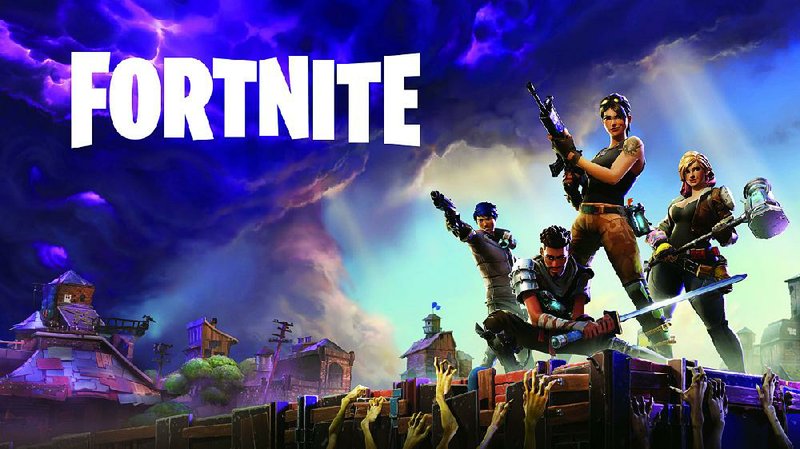Title: Fortnite
Platform: Windows, Mac OSx, PlayStation 4, Xbox One
Cost: $39.99 ... for now
Rating: ESRB rating is Teen, for violence
Fortnite, a tower-defense cooperative shooter, was first teased as "coming soon" back in 2011, and after six years it has finally arrived -- in paid early access.
Developed by Epic Games, the maker of classic series such as Unreal Tournament and Gears of War, Fortnite is a frenetic, action-packed survival and fort-building game set in a fully destructible world.
The plot is thus: A world-covering storm appeared, and 98 percent of the Earth's population vanished. Then monsters, called husks, came out of the storm.
Your goal in Fortnite is to scavenge for resources to build weapons and defenses, beat back never-ending swarms of husks and save what's left of humanity.
Each match is basically this: Team up for a particular mission, with up to three other players. Spend time scavenging that world for resources and crafting components, then build defenses and traps around the mission objective while fighting off waves of enemies.
INITIAL THOUGHTS
The game starts off with a progression of quests, given to you by an adorably zany human-like robot, and an easy learning curve -- at first, building bases and defenses isn't really necessary, because of how weak the husks are.
The first map, Stonewood, which takes quite a few hours to complete, is basically a very long tutorial. Starting with the second map, however, fort-building really comes into play as the husks get stronger.
The trick to success, like all good tower-defense games, is to build an inviting path for the hordes of husks to follow, and then line it with deadly traps. Spiked floors, poison gas, electric shocks and springboards that launch monsters off cliffs are all options. It's even possible to recruit survivors, hand them a gun and have them help defend the base.
Fortnite's graphics look great, the voice-acting is pretty good, and controlling the four playable archetypes feels snappy. Each archetype -- Commandos, Ninjas, Constructors and Outlanders -- has a particular set of skills. Commandos are good at ranged attacks; Ninjas at melee combat; Constructors are better at building defenses; and Outlanders are best at scavenging for resources.
MICROTRANSACTIONS
As I mentioned before, right now Fortnite is in paid early access. Sometime in 2018, the plan is to make this a free-to-play game. A bit counterintuitively, that means much of the game centers on microtransactions, or having the option to pay real money for virtual items.
Playing Fortnite in early access requires a Founder's Pack -- which ranges from the Standard edition at $39.99 to the Legendary edition at $149.99. The more expensive packages grant more heroes and weapons and other perks upon starting out.
The two main ways to progress in the game are through experience, gained by completing missions, and by smashing open pinatas -- Fortnite's version of loot chests, given as rewards for completing missions. There's also a special in-game currency, called v-coins, that can be earned in small amounts by completing daily quests, or bought for real money.
Heroes, traps and weapons have a "rarity" -- Common, Uncommon, Rare, Epic, Legendary or Mythic. All of these start off at level one, and can be leveled up. The rarity controls the maximum level -- so a Legendary or Mythic hero has the potential to be far stronger than an Uncommon or Rare hero.
Because these items come out of pinatas, and the rewards from pinatas are random, there's no guarantee to get any particular class or weapon. The more you play, the more chances there are to get that desired item or hero; and the money shortcut is there for those who can't wait.
In the time I spent playing, however, I did manage to acquire one Legendary hero, several Epic heroes and a fair number of Legendary weapons and other items.
PROGRESSION
Fortnite is not a game that can be finished in a week or two. Leveling up earns skill points, which unlock abilities on a vast, branching skill tree. There are also research points -- which are gained passively over time, and unlock nodes on their own skill tree. I like this because it means there's always more to do, some small goal to focus on next and accomplish.
Each day, players also have bonus experience available -- essentially doubling the experience from the first couple of missions. There's a daily reward, to encourage frequent logins. Overall, I've had quite a bit of fun playing this game and good experiences with teammates, and I plan to keep playing from time to time.
Review code for Fortnite was provided by the publisher, and played on PlayStation 4 and Windows.
Cross swords with Jason at
jbennett@arkansasonline.com
ActiveStyle on 08/21/2017
